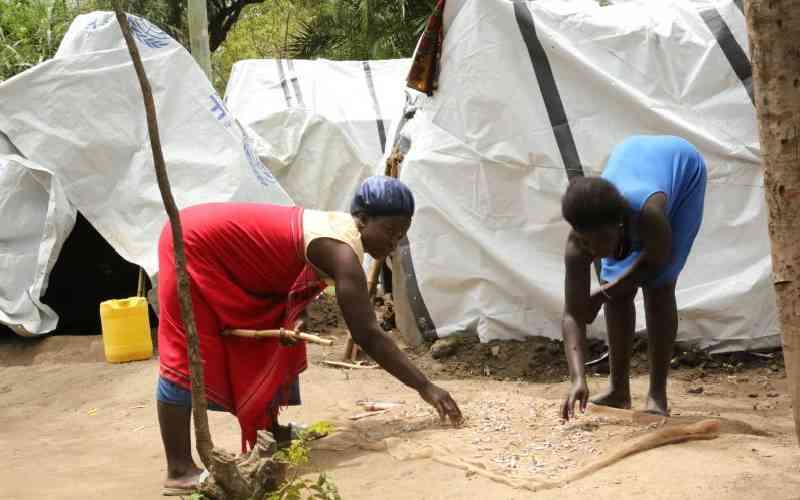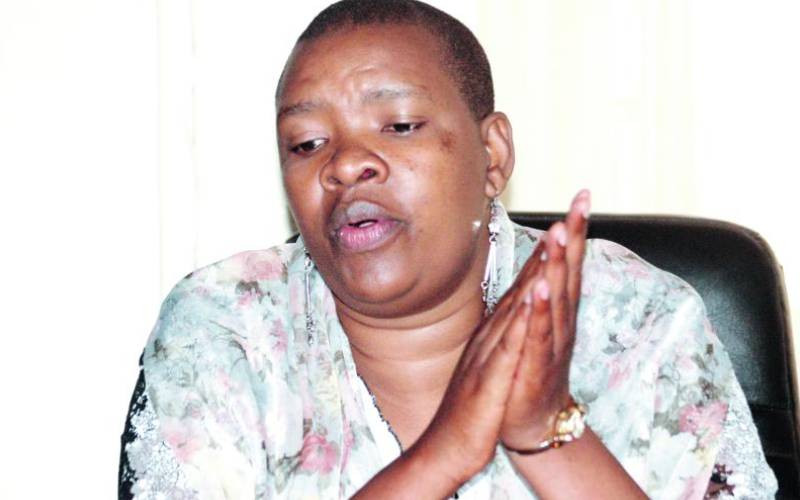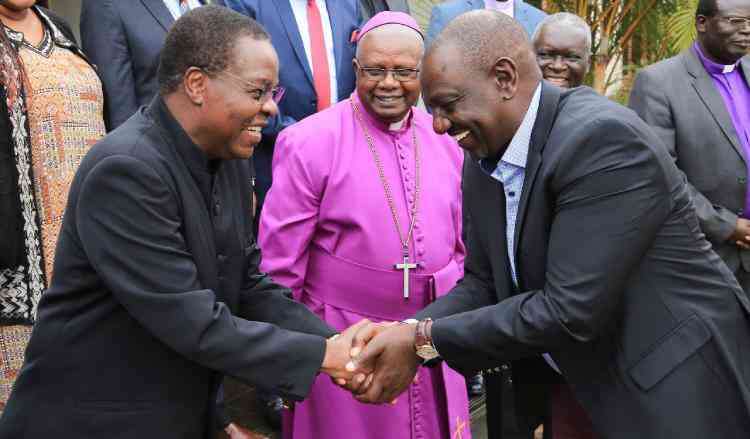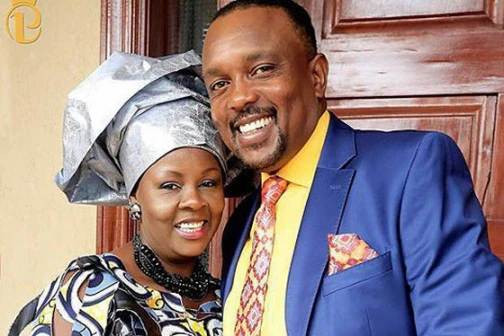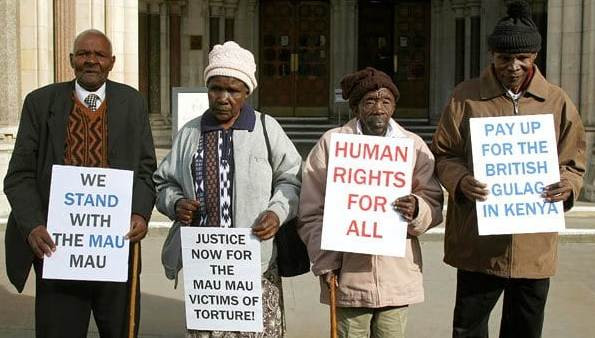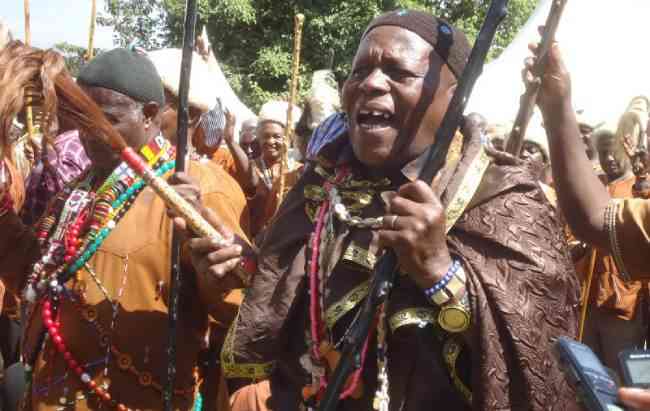During Jamhuri Day celebrations on Tuesday, a Maasai elder was among those invited to offer prayers. He recited a Maasai cultural prayer. This was before preachers from major faiths had a chance to pray.
The Maasai elder’s role during the event was informed by the fact that the community has, over the years, managed to preserve its culture which has become a major tourist attraction. This is irrespective of whether you are talking about the Kenyan or Tanzanian Maasai.
This also shows that Kenyans have remained in touch with their culture in the face of modernisation and the influence of foreign cultures.
Jamhuri Day should provide the country with an opportunity to take stock of the achievements made, including the cultural aspects. This is in line with Clause 11 of the Constitution, which recognises culture as “the foundation of the nation and as the cumulative civilisation of the Kenyan people and nation”.
We should be able to see a diversification of cultural prayers from the different communities. This is not to say all communities should crowd the dais and say their prayers. Maybe we should have a rotation. Gikuyu elders pray while raising their hands facing Mt Kenya. However, it is not clear how this would be received.
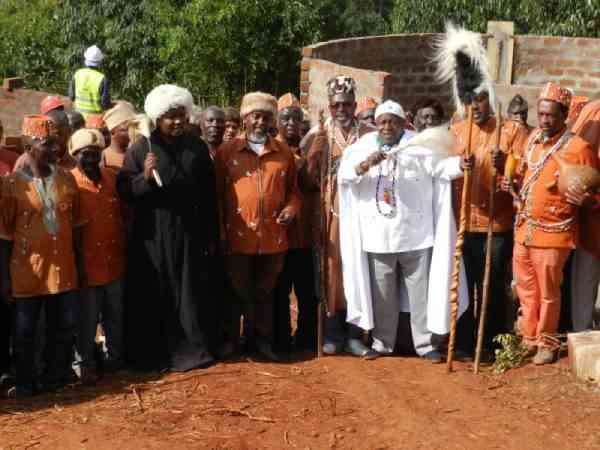
If this is allowed to happen, it may bring about fears of the emergence of the outlawed Mungiki sect in Mt Kenya. The group is known to pray the same way.
The fear-mongering would be interspersed with words such as gwata ndai and ngomi (more on this later). The church in Mt Kenya would probably accuse President William Ruto of encouraging the worship of ‘ngoma (satanism). It would then threaten to withdraw support from the president and his government.
Criminalised culture
There is an unwritten rule in Mt Kenya that anything to do with Gikuyu culture and practice should be disallowed and labelled as extremism. In short, the practice of Gikuyu culture has ideally been criminalised in Mt Kenya today.
Today, chiefs and their assistants play hide and seek with brewers of muratina, the Gikuyu cultural drink made out of honey and sugarcane juice. The chiefs will tell you that they are fighting illicit alcohol, which becomes a rent-seeking opportunity they demand bribes.
While chiefs in Kiambu are busy harassing muratina brewers, in the neighbouring Kawangware and Kangemi, busaa clubs are operating freely. At the Coast, the traditional mnazi is a celebrated drink. Why the application of double standards when it comes to muratina? Isn’t it ‘traditional’ enough?
Muratina is the official drink used to bestow blessings in all Gikuyu cultural events, from circumcision rituals to ruracio (bride price ceremonies). The other day, we saw pictures of Deputy President Rigathi Gachagua, armed with a cow horn, downing muratina during the traditional wedding of Mathira MP Eric Wamumbi and Betty Maina.
Isn’t the muratina that was being taken at the high-profile event, also attended by President Ruto, not the same one that has seen brewers harassed and arrested by chiefs?
During last year’s political campaigns, Justin Muturi, the current AG, pulled off a highly publicised stunt, whose significance left seasoned Gikuyu cultural purists baffled. He assembled Gikuyu elders at Mukurwe wa Nyagathanga, in Muranga County, who purported to install him the ‘Gikuyu spokesman’.
Since the Muturi event had the blessings of political powers, no one, particularly from the church, raised any objections. Neither were there claims of ngomi/ngoma worship. At that time, it was okay to practice Gikuyu culture, so it appeared.
In October 2023, Interior CS Kithure Kindiki issued an order banning Mihiriga Kenda, a Kikuyu cultural group, based in Kiambu and duly registered by the government, claiming it was practising ‘cultural extremism’.
Kindiki issued the order on the background of the Shakahola massacre, which has so far claimed close to 500 lives and still counting. And this happened in the name of Christianity.
Mihiriga Kenda
It should be noted that not a single person belonging to the said Mihiriga Kenda has been arraigned or charged with any offence. Mihiriga Kenda, for the uninitiated, simply means the nine clans of the Agukuyu.
At the coast, we have the Kaya shrines, in Kilifi, where Mijikenda elders meet to conduct their cultural rituals. The Kaya shrines are even recognised as Unesco World Heritage sites. Yet Gikuyu elders cannot be allowed anywhere near Mt Kenya forest, where their ancestors used to pray and offer sacrifices to Mwenenyaga, the Gikuyu deity.
Ngomi is the Gikuyu name given to ancestors, yet whenever a Gikuyu worships Mwenenyaga, the God of their ancestors, they are labelled ‘ngoma/ngomi worshipers’. Such is the stigma associated with that word. The truth, however, is that Gikuyus do not worship ngomi/ancestors. Jomo Kenyatta, in his book, Facing Mt Kenya, said that ngomi are simply intercessors, much like the saints do for Christians.
Ngoma is the singular form of ngomi. Derived from the Gikuyu word gukoma, which means to sleep, ngoma is the cultural euphemism for one who has ‘slept’/died.
The other word that has been w stigmatised is gwata ndai, which, in Gikuyu means tell me a riddle. These are the same riddles we study in oral literature or orature as was popularised by the late Miceere Mugo.
Kindiki, who is most likely a member of Nchuri Ncheke, and who is a scholar of no mean repute, should know his order is ill-advised. He should do well to read Facing Mount Kenya and Louis Leakey’s three-volume book, The Southern Kikuyu Before 1903. The criminalisation of a people’s culture is inimical to national security. Criminals, including those who hide behind culture, should be arrested and arraigned before a court.Culture is innocent here.
Ngunjiri is the curator of Maisha Yetu, a Digital Arts and Books media platform
 The Standard Group Plc is a multi-media organization with investments in media platforms spanning newspaper print
operations, television, radio broadcasting, digital and online services. The Standard Group is recognized as a
leading multi-media house in Kenya with a key influence in matters of national and international interest.
The Standard Group Plc is a multi-media organization with investments in media platforms spanning newspaper print
operations, television, radio broadcasting, digital and online services. The Standard Group is recognized as a
leading multi-media house in Kenya with a key influence in matters of national and international interest.


